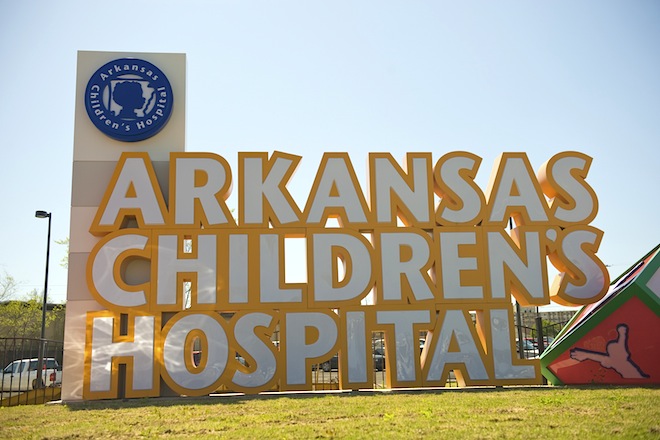Arkansas Children’s Hospital Gets Patients To Appointments With Twilio Voice + SMS
Time to read: 2 minutes

[Arkansas Children’s Hospital is part of the Twilio.org program, committed to supporting nonprofit and social good organizations using communications technologies. Learn more about how your nonprofit can utilize communications at Twilio.org.]
Arkansas Children’s Hospital, located in Little Rock, Ark., has a clear mission: to improve children’s health by providing integrated patient care, research, education and prevention. As the only pediatric medical center in Arkansas, and the 6th largest pediatric hospital in the US, they have a tremendous responsibility to their patients and patient’s families.
With 500 physicians, 4,400 employees and over 400,000 outpatient appointments per year, communication is essential to ensure proper and timely treatment. But the hospital was having trouble finding the right way to reach out to patients, spending millions on solutions that didn’t work.
In 2012 Arkansas Children’s Hospital spent over a quarter million dollars sending appointment reminders to patients by mail, still the no-show appointment rate stuck at 20%. With an average of 1,000 daily out-patient appointments, the hospital had over 250 no-shows per day, costing the hospital tens of millions a year.
Keeping Patients In The Loop: Using SMS To Reduce No-Show Appointments
To reduce no-show rates and help get patients the timely treatment they need, the hospital built proactive appointment alerts using Twilio Voice and SMS.
Stewart Whaley, team leader of the Systems Development Group at Arkansas Children’s Hospital, was frustrated with the hospital PBX’s solution. He remembered seeing a live Twilio demo at the DrupalCon Developer contest and experienced the quintessential “aha” moment. “I immediately started working to get ACH (Arkansas Childrens’ Hospital) management to let me scrap our phone system and move to the cloud,” Whaley says.
“[Twilio] has been a massive improvement over the old system I built with a phone card, land lines, a server, and the MS-TAPI.” The telecom hardware maintenance and upkeep cost the hospital money, and the hardware wasn’t flexible to their needs. “The man-hours for maintenance and support for our old phone system was very high and vendor solution estimates to replace it were ridiculous,” said Whaley.
When Stewart began exploring the Twilio SMS API, he found the flexibility he was after, and the hospital found a new, powerful communication tool.
Within weeks, the hospital had Twilio Voice powered appointment reminders up and running. Now when a patient books an appointment, they can opt in to Voice reminders. The hospital’s call script will contact patients a day before their appointment reminding them of the day, time, and location, and asking them if they’ll make the appointment. If the response is “yes” the IVR will confirm the appointment time once again and hang up;. If they say if “no” the script will remind the patient to reschedule, and give them a number to call to make a new appointment.
In just a few months, the voice reminders have already significantly dropped no-show rates by 2%, saving the hospital a significant amount of time and money. Stewart and the team at Arkansas Children’s Hospital are now working on rolling SMS reminders with a trial group of a few hundred patients.
Arkansas is one of the top four states with the most cell-only households. Stewart and ACH are hopeful that expanding the SMS integration will continue to reduce costs for the hospital and provide a better experience for patients.
Learn more about the Arkansas Children’s Hospital here
Related Posts
Related Resources
Twilio Docs
From APIs to SDKs to sample apps
API reference documentation, SDKs, helper libraries, quickstarts, and tutorials for your language and platform.
Resource Center
The latest ebooks, industry reports, and webinars
Learn from customer engagement experts to improve your own communication.
Ahoy
Twilio's developer community hub
Best practices, code samples, and inspiration to build communications and digital engagement experiences.


